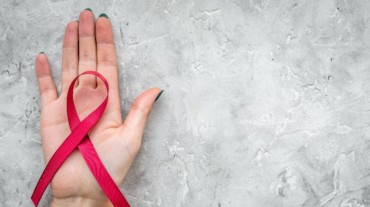
Human immunodeficiency virus or HIV is an infection that weakens our body’s immune system whereas acquired immunodeficiency syndrome (AIDS) is the late stage of the infection. People tend to mix up the two, but they are not the same thing. There are more doubts about HIV and AIDS. So, on the occasion of World AIDS Day, which is commemorated on December 1, an expert answers some of the frequently asked questions about HIV and AIDS.
At the end of 2022, it was found that about 39.0 million people were living with HIV, as per the World Health Organization. As many as 6,30, 000 people lost their lives due to HIV-related causes last year.

There are many questions that people have regarding HIV and AIDS. Some of them are:
Antiretroviral therapy (ART) is recommended for people living with HIV. As long as they take the medicines under this therapy, they will have a normal life span, says Dr Vasant Nagvekar, an expert in infectious diseases.
A. A person diagnosed with HIV will have to take the HIV medication for their entire life.
A. There is no permanent cure, but it can be kept under control with appropriate medications, says the expert. Our body also can’t get rid of HIV, so once you have it, it will be with you for life.
Yes, of course, using the same washroom with your family is not a problems. HIV is spread from the body fluids of a person who is infected, not by using the same washroom.
Yes, you can use the same utensils. HIV does not spread by sharing food or using the same utensils.
A. Currently, there is no vaccine to prevent or treat those who are living with HIV infection.
Yes, provided both are virologically suppressed, especially the mother, says Dr Nagvekar. Also, the parents need to check with a specialist about delivery, breastfeeding and antiretroviral therapy for the newborn.
Select Topics of your interest and let us customize your feed.
PERSONALISE NOWAbsolutely! HIV is majorly transmitted by sexual means, mother to child (if mother is positive) and through blood transfusion.

Earlier, the HIV treatment was delayed, mostly due to concerns about its long-term effects. CD4, which is a glycoprotein found on the surface of immune cells, played an important role. Doctors waited until a person’s CD4 count dropped below 500, but now things have changed due to technological advancement. Now, the treatment can begin early, sometimes even the moment you get diagnosed with HIV.
Start antiretroviral therapy as early as possible, which means it should be done within 24 hours of exposure. Do it only after proper consultation about HIV and other sexually transmitted diseases.
To know in detail about HIV and AIDS, click here!
Even though there is no cure, people living with HIV and who take the medicines prescribed by their doctor can live healthy and long lives. Having the medicine is important, as it can reduce the amount of HIV in the infected person’s blood.
Get Latest Updates on Preventive Care, Family Care, Reproductive Care, Self Care